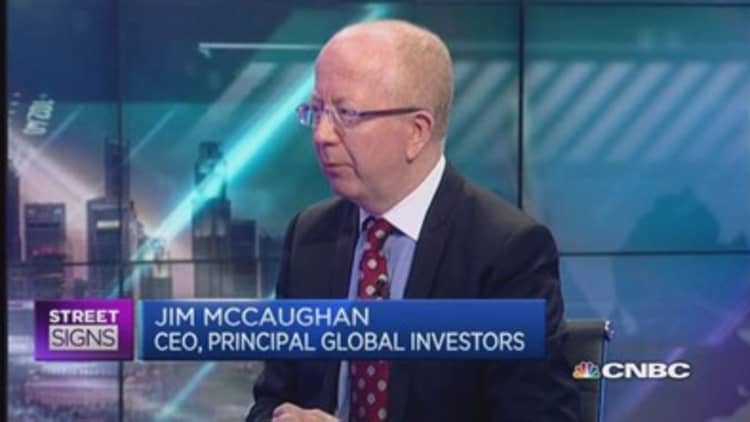The Beijing-led Asia Infrastructure Investment Bank (AIIB) may be more China-focused than initially thought, analysts say, after Taiwan's bid to become a founding member was denied.
On Monday, China's State Council Taiwan Affairs Office confirmed media reports that Taiwan's bid to become a founding member of the new development bank was rejected, but membership would be welcome in the future "under an appropriate name."
Nomenclature is a long-standing issue in cross-straits relations, so the news was not entirely unexpected, analysts told CNBC.
"[While Taiwan did not disclose the name it used] it seems to be 'Chinese Taipei,' which Taiwan uses in the Olympic Games, but the change to 'Taipei, China'' in the Asian Development Bank has set a precedence of sorts," said Hoo Tiang Boon, assistant professor with the China Program at the S. Rajaratnam School of International Studies (RSIS), Nanyang Technological University. "So from Beijing's perspective, why must the AIIB be less stringent... when the name highlights great symbolism?"
"Taipei, China" suggests that Taiwan is under Chinese rule, encapsulating Beijing's reunification stance. Taiwan split ways with China in 1949 during a civil war on the mainland.
In response to China's announcement, a spokesperson from Taiwan's Presidential Office said the country prefers to stay out of the AIIB unless it is treated with dignity and equality.

China in leadership?
Thus far, the $50 billion China-led AIIB has received enthusiastic support from more than 40 nations, including key U.S. allies Britain, Germany and Australia. China's foray into using its growing power to reshape economic arrangements in the region rivals the U.S.-based World Bank, as well as the International Monetary Fund and Asian Development Bank, which are led by Europe and Japan, respectively.
The Asian economic giant is playing down concerns over its influence on the AIIB's operations; the secretary-general of China's interim secretariat Jin Liqun said over the weekend that the mainland will not dominate operations despite having the biggest share. But Taiwan's rejection may suggest otherwise.
"China's unilateral decision about Taiwan's membership indicates that China is essentially driving the decision-making, at least up to this stage, even though there are many other countries which have become founding members of the AIIB," Rajiv Biswas, Asia Pacific chief economist of IHS Global Insight, told CNBC in an email.
Read MoreMore countries sayto join China-backed AIIB investment bank
Member nations will discuss the AIIB's shareholding structure in Washington this week, but the inclusion of European heavyweights may help "circumscribe and dilute Chinese power", experts say.
"When it comes to the crafting of rules, China will have to take into account the concerns of G-7 economies, with regards to things like environment standards," NTU's Hoo said.
"But with China having a larger share, it automatically means that they would naturally have a greater leverage to fulfill their interests. But, does that mean an insidious scheme to use the AIIB to promote Chinese geopolitical ambitions? I don't think so," he added.
Read MoreChina's influence on AIIB may be outsized
Taiwan's membership
While Taiwan's bid to become a founding member was thwarted, it may still become an AIIB member because the bank is conceived as a "broad-based institution, without the pre-requisite of statehood," Hoo told CNBC.
This episode is also unlikely to worsen cross-straits relations.
"This issue about which name [Taiwan] is allowed to use is nothing new... In most cases, some mutual acceptable compromise has been reached between China and Taiwan," IHS' Biswas said. Taiwan's integration into the mainland's massive economy, under the stewardship of President Ma Ying-jeou, also means that the country won't want to "jeopardize economics over such an issue", he added.

